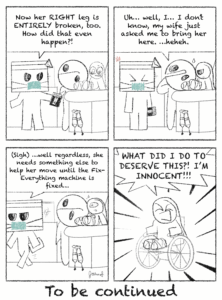UR has fallen from 35th to 37th out of the best national universities since last year, according to a recent issue of the U.S. News and World Report. “In the grand scheme of things, there’s some semblance of reality in the rankings,” Provost of the University Charles Phelps said. “[But] they always have to pass the ‘sniff test.'”Phelps describes this test as a subjective judgment by the rankers in terms of which schools “feel” right at the top of the rankings. As such Phelps says that the reason why the criteria used by U.S. News and World Report changes from year to year in order to ensure that schools such as Harvard or Yale are always toward the top of the rankings. “The part they have right is that we’re one of the top 50 research universities,” Dean of Admissions and Financial Aid Jonathan Burdick said. “The numbers mean nothing.”New York University, which was tied with UR at 35th last year, rose to 32nd this year, but Vice President Public Affairs of New York University John Beckman sees little merit in ranking colleges and universities. “It is a hopeless undertaking to try to rank colleges and universities – they are too complex and too diverse to be ranked,” Beckman said. “[Rankings] are a tactic for selling magazines, and they should be viewed as such. Ask yourself – if a college or university is No. 1 one year, and several spots below that the next year, how valid could the rankings be? Could there really have been a set of dramatic changes at that college that caused it to ‘fall?'”Continuing, he said, “The more likely explanation is one involving the validity of the ranking – the magazines often change their methodologies.”One of the biggest problems that Phelps attributes to the rankings involves the factor of peer assessment, which accounts for 25 percent of a university’s score. “It’s one of life’s great mysteries to me,” Phelps said. “We are very undervalued in that [category] and I’m puzzled as to why.””They only thing that might have caused [the decrease in rankings] is the reputation survey,” Burdick said.Burdick said that UR’s peer assessment may not reflect the institution because the surveys demand a great deal of time and knowledge of other schools, both of which are limited. As a result, those universities who focus on having a significant marketing campaign are able to publicize themselves better, which results in a higher peer assessment ranking, according to Burdick. “I believe we should work on [marketing ourselves] – all of the real indicators are fine,” Burdick said. “If there’s one thing we can do, it’s that.”Another point of contention is the average graduation rate, which is calculated by averaging the percentage of freshmen that entered between 1994 and 1997 and graduated within a six-year period, and, with the average freshman retention rate, accounts for 20 percent of the ranking. “Our official graduation rate this year is low, but [six years ago it] was a big class,” Burdick said. “We’ve started to hit some improvements that we know we’re getting,” Phelps said. “We’ll get some gain [in the average graduation rate in the future].”UR has fallen 11 positions in the U.S. News and World Report ranking since 1993, when students complained about not being ranked in the top 25 schools for the third year in a row.Phelps says this fall in rankings is connected to the endowment. “It’s a kind of glacial effect of downgrading resources – the endowment in a word,” Phelps said. “In the last 25 years, there has been a drop in the endowment.”Fifty years ago, UR had great success in its endowment when it invested in the up-and-coming Xerox Corporation, according to Phelps. In 1974, UR lost about 40 percent of its endowment, and, in the mid-1980s, UR experienced a “loss of resources in relation to our peers” because of the great success of other universities’ investments.”Americans have a bit of an obsession with rankings – the college and university rankings make use of that,” Beckman said. Dean of The College William Green agrees. “These rankings don’t mean anything,” Green said. “There are infinitesimal differences [between schools in the ranking]. It’s not measuring anything we do.”While U.S. News and World Reports warns against using only its rankings to choose a college, there is some concern that students use these rankings as a guide in making their decision, but Beckman discounts the rankings further. “No student should base his or her choice of college on these rankings – we believe that the students who apply to NYU and their families are too savvy to pay much mind to the rankings one way or the other,” Beckman said. Many students were unaffected by rankings when they applied to UR. “I think we have pretty good academics here,” sophomore Steve Privitera said. “I haven’t gone to the 36 other schools, so the ranking doesn’t really matter to me.””It’s a Tier One school, so I can’t complain,” freshman Courtney Higgins said.Phelps anticipates that the ranking will be “somewhere between stablizing and going up” in the coming years. “We’ve got strong faculty and strong students, but money certainly helps,” Phelps said.Additional reporting by Andrew Alkon.Schnee can be reached at cschnee@campustimes.org.
Album Review
UR drops to 37th
“Afterglow” was meant to be a deluxe version of the original “EUSEXUA,” but instead took on a life of its own, running away into a drug-fuelled night filled with grimy DJs and hallucinations from one too many bumps. Read More
gender
UR drops to 37th
The motivation for TOOP’s production is the opposite of the traditional gender roles the plot reifies. It is a painting of contradictions. Read More

